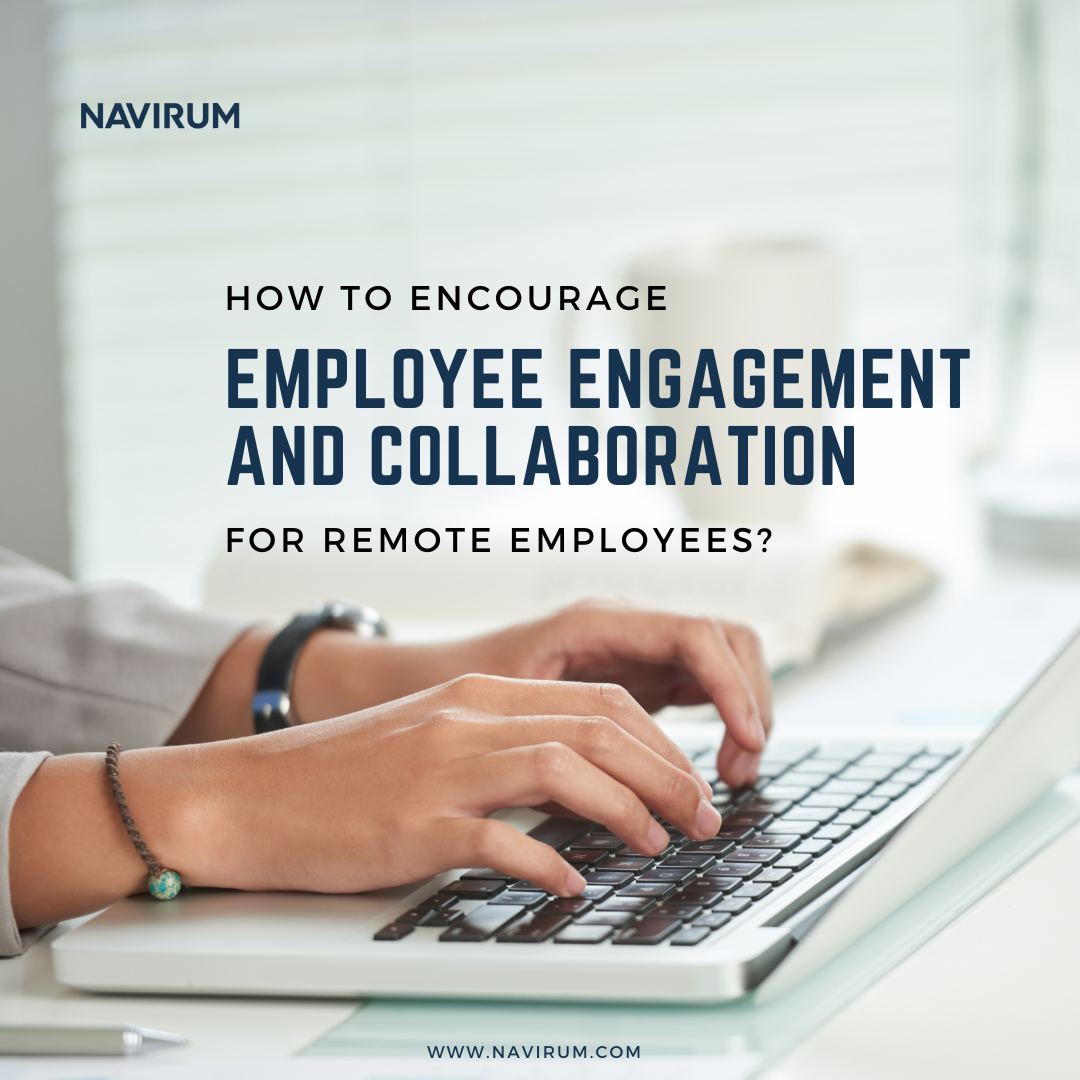Nurturing Engagement and Collaboration: Empowering Remote Employees
In the ever-evolving landscape of modern work, remote employment has become increasingly prevalent, reshaping the way organizations operate and teams collaborate. While remote work offers flexibility and autonomy, it also presents unique challenges in fostering employee engagement and collaboration. Navirum understands the importance of nurturing a connected and engaged remote workforce. Here are some of our strategies to encourage employee engagement and collaboration among remote teams, empowering them to thrive in a virtual environment.
Cultivate a Culture of Trust and Transparency
- Central to fostering engagement and collaboration among remote employees is establishing a culture built on trust and transparency. Encourage open communication channels where team members feel empowered to share ideas, concerns, and feedback freely. Transparent communication helps bridge the physical distance between remote workers, fostering a sense of belonging and alignment with the organization’s goals and values.
Leverage Technology for Seamless Communication and Collaboration
- Technology serves as the backbone of remote collaboration, enabling seamless communication and collaboration regardless of geographical boundaries. We use robust communication tools and platforms such as Salesforce Chatter, Slack, Zoom or Google meetings to facilitate real-time interactions, file sharing, and project collaboration. Additionally, leverage project management tools like Jira, Atlassian, Confluence, Cost Tracker, Tempo and Quip, to streamline workflows and keep remote teams organized and aligned.
Foster Virtual Team Building Activities
- Building strong interpersonal connections among remote employees is essential for fostering engagement and collaboration. We organize virtual team building activities such as virtual coffee breaks, or remote team lunches to encourage social interactions and foster a sense of camaraderie. These activities provide remote employees with opportunities to bond, share experiences, and build meaningful relationships beyond work tasks.
Encourage Regular Check-Ins and One-on-One Meetings
- Remote work can sometimes lead to feelings of isolation or disconnection from the team. To combat this, we encourage regular check-ins and one-on-one meetings between managers and remote employees. These meetings provide a platform for discussing progress, addressing challenges, and providing personalized feedback and support. Regular communication helps remote employees feel valued, supported, and connected to the larger team and organization.
Promote Flexibility and Work-Life Balance
- Empowering remote employees with flexibility and promoting work-life balance is essential for maintaining engagement and preventing burnout. We encourage employees to establish clear boundaries between work and personal life, and respect their schedules and preferences. Offer flexibility in work hours and encourage employees to take breaks and prioritize self-care. By prioritizing employee well-being, organizations can foster a culture that values individuals’ holistic health and productivity.
Recognize and Celebrate Achievements
- Acknowledging and celebrating the achievements of remote employees is crucial for boosting morale and reinforcing a culture of appreciation. Recognize outstanding performance, milestones, and contributions through virtual shoutouts, awards, or recognition programs. Celebrating successes, both big and small, helps remote employees feel valued and appreciated, fostering a positive work environment and encouraging continued engagement and collaboration.
In conclusion, fostering engagement and collaboration among remote employees requires a proactive and holistic approach that prioritizes communication, trust, and connection. By cultivating a culture of trust and transparency, leveraging technology for seamless communication and collaboration, promoting virtual team building activities, encouraging regular check-ins, prioritizing flexibility and work-life balance, and recognizing and celebrating achievements, organizations can empower remote employees to thrive in a virtual environment and drive collective success.

